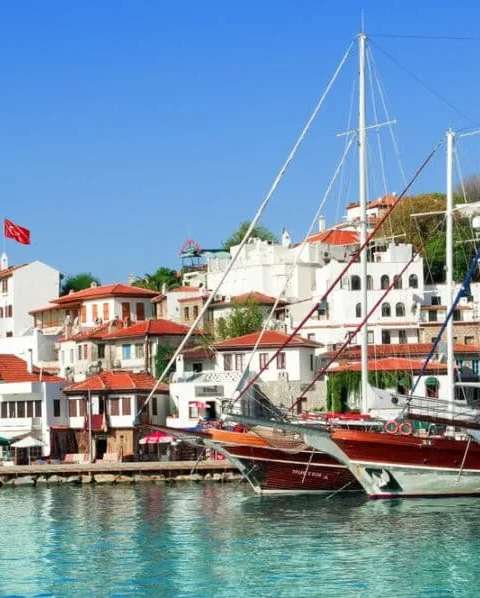Using a new fee and rules for tourists, Turkey is trying to preserve and improve the experience of worshippers at Hagia Sophia.

Tourists can’t visit Hagia Sophia for free anymore. Since Monday, foreign tourists have had to pay an admission fee of €25 (about $27) to enter the mosque and UNESCO World Heritage Site, according to Turkey’s Ministry of Culture and Tourism.
Hagia Sophia has admitted tourists free of charge since 2020 when the government designated it a mosque and restarted Muslim worship there. It was built nearly 1,500 years ago as a Byzantine cathedral and is one of Turkey’s most popular attractions.
The government has separated how tourists and worshippers enter the building. Instead of the main entrance, tourists will now enter through a ramp and tunnel. They will have access only to the gallery floor.
“In some ways, it may be better to separate the crowds,” said Alper Ertubey, founder of Hike n’ Sail Turkey. “It was getting too chaotic in the lower area.”
Cutting the Chatter in the Mosque
In the gallery section, visitors can see Byzantine mosaics, Ottoman annexes, and the mosque’s sanctuary floor. They can also pass through the so-called heaven-hell gate, a section previously off-limits.
To avoid disrupting worshippers, there’s a mandatory headset system with a QR application under which visitors can receive information in 23 languages. Guides can no longer speak to their groups.
“The downside is the guides are muted,” said Ertubey. “Turkish tour guides love Hagia Sophia, and they were providing an exquisite interpretation of this human heritage site.”
The government also added security cameras, fire detectors, and an emergency announcement system.

Worshippers First, Tourists Second
Muslim visitors to the country wishing to worship can still enter the areas for worship for free at the appropriate times.
The new fee and rules for tourists are the latest move toward Hagia Sophia’s resumption as primarily a house of worship.
In 2020, President Tayyip Erdogan declared Hagia Sophia a mosque again. The move sparked international opposition from UNESCO, Western governments, and some Christians. Until 2020, the government classified it as a museum.
“I personally think that the new system is not worse than a week ago, but terminating the museum status of Hagia Sophia is a very wrong idea,” said Ertubey.












